Cryptocurrencies have exploded in popularity over the past few years. However, the emergence of countless crypto scams and exchange hacks has made security a top concern. Hardware wallets provide the ultimate protection for your assets by allowing you to store your private keys offline.
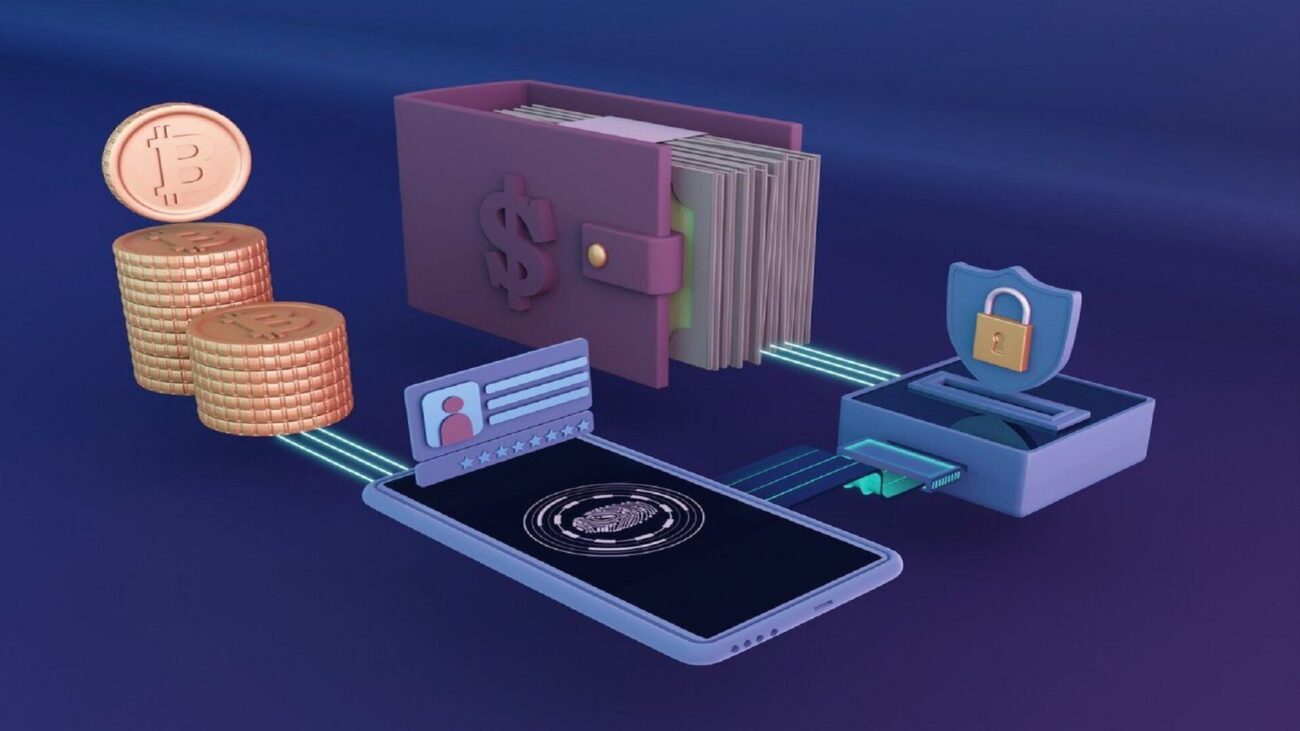
This guide will explore everything you need to know about hardware wallets and top 10 hardware wallets- from how they work to the top devices on the market in 2023. By the end, you’ll have all the information necessary to select the best hardware wallet for your needs and usage.
What is a Hardware Wallet?
A cryptocurrency hardware wallet is a physical device, similar to a USB drive, designed to provide safe and offline storage for private keys. It allows users to store, receive, and spend cryptocurrencies without exposing their private keys to a internet-connected computer where they would be vulnerable hacking or malware.
Hardware wallets contain specialized software and hardware features to keep private keys isolated within the device at all times. When conducting transactions, the hardware wallet signs the transactions internally before broadcasting them to the network without the keys ever leaving the device.
Benefits of Hardware Wallets over Software Wallets
Hardware cryptocurrency wallets offer distinct security advantages over software options:
- Private keys are stored offline, protecting them from online threats
- Provide cold storage – assets held offline can’t be hacked remotely
- Transactions are verified on the device’s screen before signing
- Backup and restore functions allow recovery if device is damaged/lost
- Anti-tampering mechanisms destroy keys if device is physically hacked
How Hardware Wallets Keep Your Assets Safe
Crypto hardware wallets utilize a combination of special software and hardware to achieve robust security:
- Isolated wallets – keys never directly exposed to internet-connected device
- Encrypted hardware chips – store keys and sign transactions
- Strong PIN and passphrase encryption – prevent brute force attacks
- Code signing prevents tampered firmware installations
- Anti-tampering mechanisms – detect physical hacking attempts
- Random number generation – creates secure private keys
- By leveraging these security mechanisms, hardware wallets keep your cryptocurrency investments safe.
Factors to Consider When Choosing a Hardware Wallet
Security Features and Standards
The paramount factor for any crypto wallet is the security it provides. When researching wallets, look for features like:
- Secure chips (TPM, ARM chips, Secure Element)
- Encrypted firmware updates
- Random key generation
- Anti-tamper mechanisms
- Multisig and shamir backup support
Independent security audits, and open-source code also inspire confidence.
Supported Cryptocurrencies and Networks
The top hardware wallets support a myriad of popular crypto assets including Bitcoin, Ethereum, Polkadot, Cardano, Ripple, Litecoin and more.
However, not all devices support every cryptocurrency, so check that the wallet can manage the crypto investments you plan to store. Some wallets solely support Bitcoin.
Backup and Recovery Options
Lost or damaged wallets can spell disaster without reliable backup and restoration of your holdings.
When evaluating a wallet, ensure recovery seed backups (BIP 39 standard) are available to restore your assets if needed. Other beneficial features include device cloning, cloud backups, and social recovery options.
Portability and Durability
If you need to carry your wallet, portability is key. Hardware wallets come in various forms like external devices, USB sticks, smartphones or even credit cards.
Additionally, the build quality and durability of a wallet enables it to stand the test of time. Metal casings, waterproofing and abrasion resistance increase device longevity.
The Top 10 Hardware Wallets of 2023
1.Ledger Nano X
The Ledger Nano X is the premier hardware wallet on the market, offering an unmatched combination of security, utility and cryptocurrency support. With Bluetooth connectivity, it pairs with smartphones, while packing a 100-coin capacity courtesy of its Cryptochip. No exploits have affected Ledger’s security track record to date.
The intuitive Ledger Live interface manages crypto easily, while device setup is straightforward for most users. The Nano X starts at around $119, albeit a small price for robust protection.
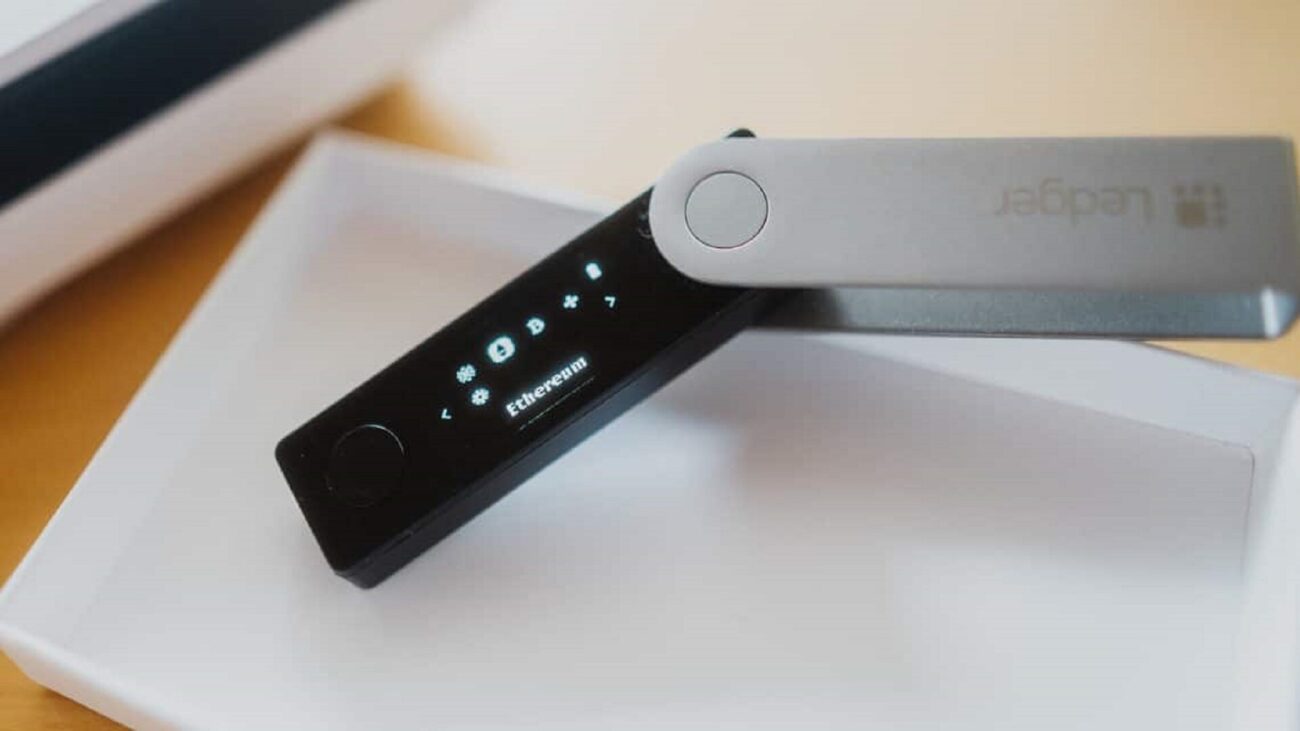
2.Trezor Model T
Trezor’s premium Model T hardware wallet leverages many high-end security features, including a customizable touchscreen for transaction confirmation/signing, Shamir backup, U2F authentication possibilities and microSD card password manager.
With Trezor, you can transact with and swap 1000+ cryptocurrencies directly within the convenient Trezor Suite and Wallet interface. Priced just over $200, the Trezor T suits advanced HODLers who utilize many crypto assets and desire customization.
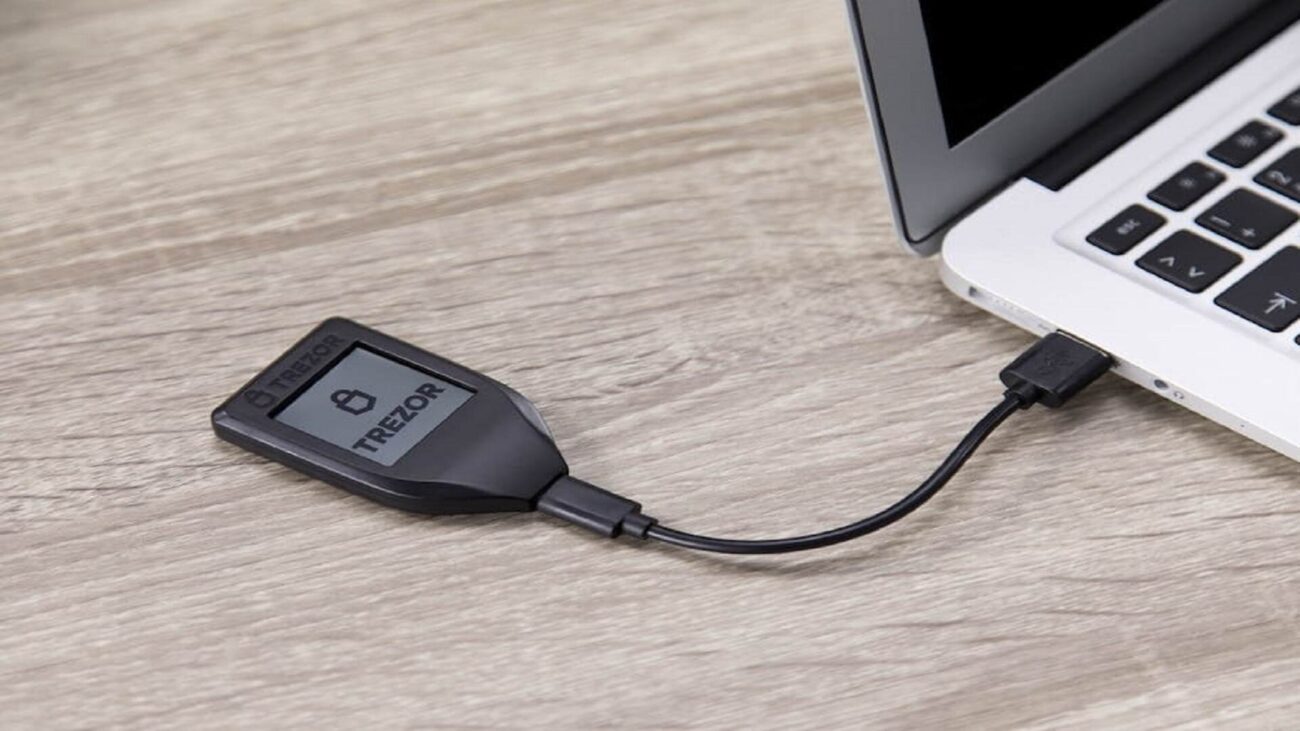
3.Ellipal Titan
The uniquely air-gapped Ellipal Titan represents one of the most security-centric wallets available. By forgoing USB and wireless connectivity, it transmits signed transactions via QR codes for supreme protection.
As the Titan works independent of any internet connections, it can never be compromised remotely. For utmost security assurance, the Titan deserves consideration despite its steeper $229 price tag.
4.KeepKey
A high-security Bitcoin and multi-currency wallet, the $49 KeepKey emphasizes simplicity and ease-of-use alongside robust encryption. It’s sleek, metal finish looks stunning while securely managing popular cryptocurrencies.
With each transaction, KeepKey’s oversized display allows for convenient confirmation, preventing sneaky malware attempts. For cost-conscious investors, KeepKey hits a sweet spot between affordability and security.
4.SecuX V20
The feature-packed SecuX V20 hardware wallet supports 1000+ total cryptocurrencies and tokens. Notably, it includes a Secure Element chip alongside force-resistant epoxy casing for bulletproof protection. V20 owners can also add passwords and signatures for an added authentication layer.
Starting around $135, the highly-portable V20 suits HODLers aiming to store many diverse crypto assets securely, including while travelling. Bluetooth support facilitates connectivity.
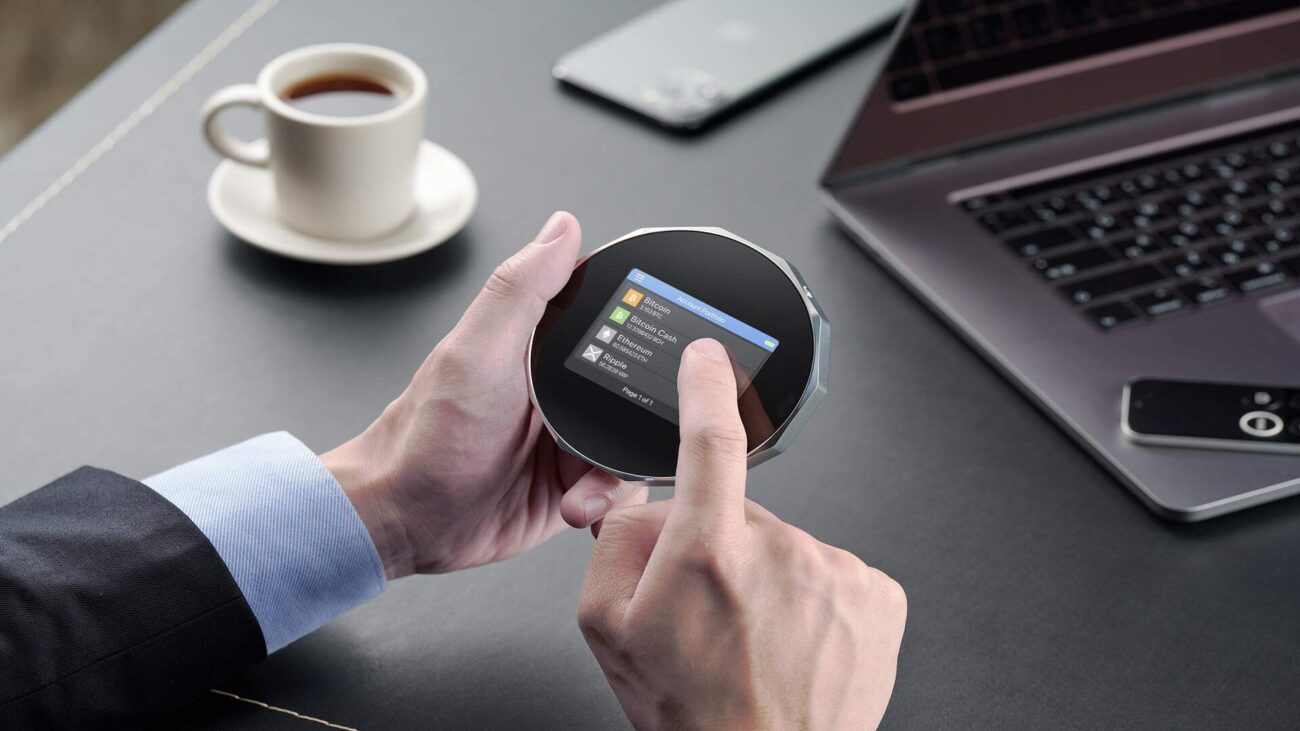
6.BitBox02
Promising beginner-friendly setup and functionality, the Swiss-made BitBox02 hardware wallet notably provides open-source firmware – allowing transparency regarding its robust security model. Once initialized, BitBox02 effortlessly links with users’ desktop Bitcoin and Lightning full nodes.
Priced competitively at $109, BitBox appeals to privacy-focused Bitcoin users. However, BitBox02’s durability issues have concerned some reviewers.
7.SafePal S1
At just $50, the SafePal S1 delivers surprising value. It lacks some advanced functionality of costlier wallets but securely supports 2000+ crypto assets and tokens. The device is operated using an intuitive mobile app, allowing user-friendly management.
While SafePal S1 isn’t the flashiest or feature-packed hardware wallet available, its budget-friendly cost makes it one the most affordable options suitable for novices.
Related Blog: The Best Trading App For 2023: Stocks & Cryptocurrency
8.CoolWallet S
Its slim, sleek credit card design makes the CoolWallet S one of the most uniquely styled and portable hardware wallets. Notably, the CoolWallet S maintains waterproofing and dustproofing with an IP68 rating, complementing the appealing aesthetics with durability.
Priced at $109, the CoolWallet S supports 1000+ cryptocurrencies and exchanges/swaps via Changelly/Simplex integration. For user-friendly mobile storage and crypto management, CoolWallet S excels.
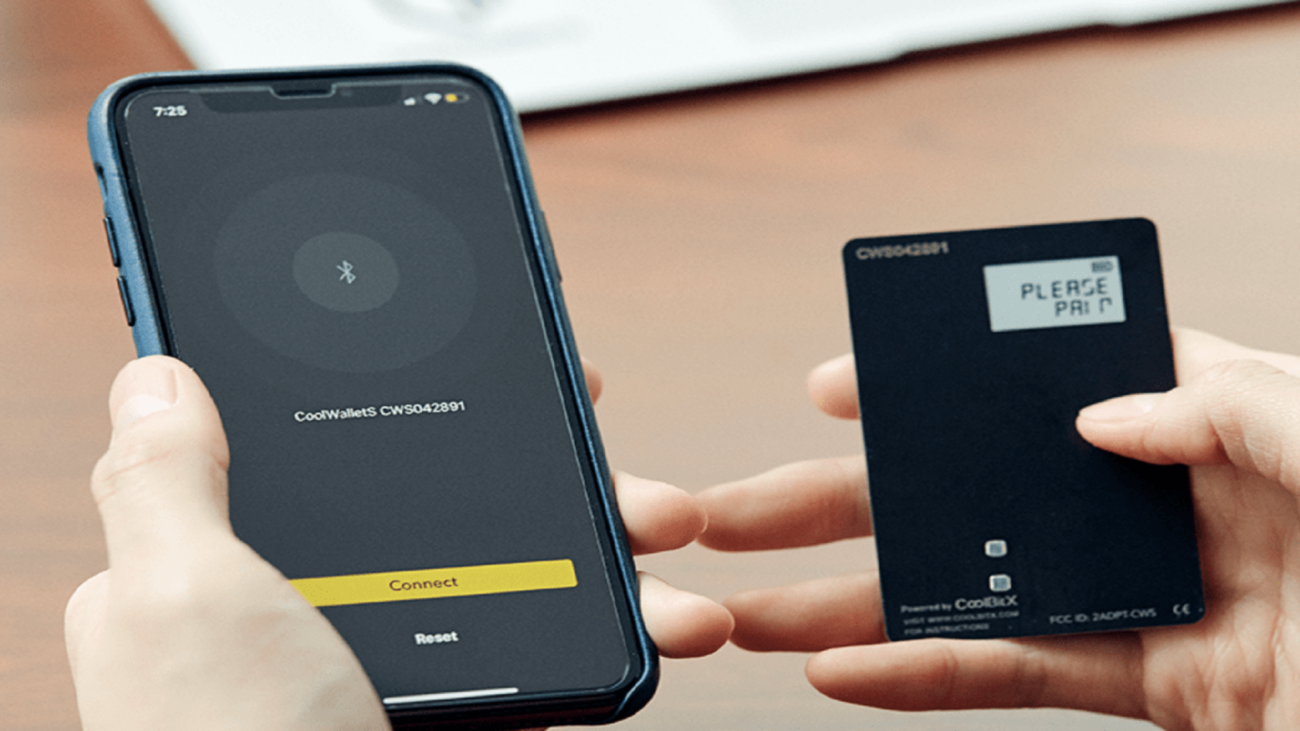
9.Coinkite Coldcard
The Coldcard MK3 hardware wallet lives up to its name – it offers exceptional cold storage functionality specifically for Bitcoin holdings. By wholly supporting PSBT transactions and partially signed Bitcoin transactions, the $119 Coldcard MK3 facilitates offline composability and air-gapped security.
MicroSD card support allows offline transaction signing, and encryption strength is formidable. Bitcoin purists intent on robust yet flexible security solutions will appreciate Coldcard’s capabilities.
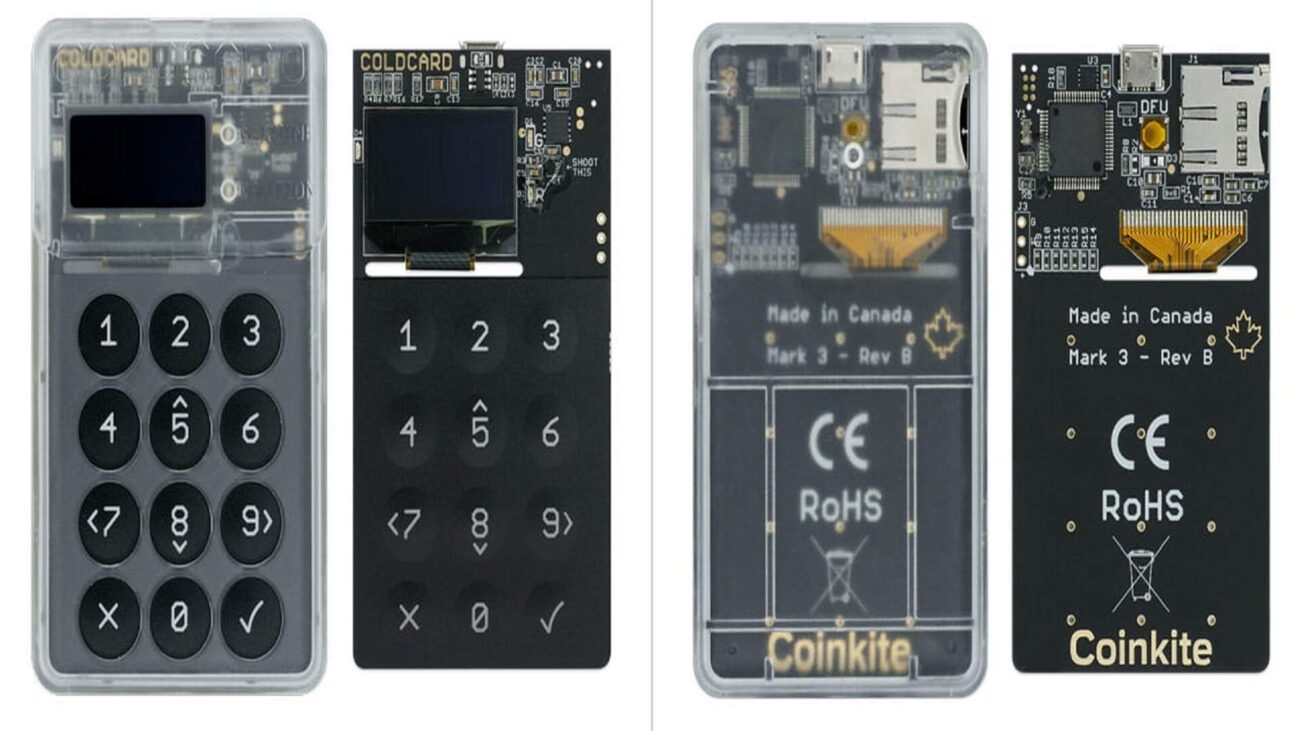
10.Keystone Pro
A newcomer that offers handy versatility, the $99 Keystone Pro hardware wallet provides everyday users, enterprises and even crypto miners robust security with improved seed phrase backup compared to competitors.
With Keystone Pro’s unique social recovery and cloned device pairing features, you can easily secure holdings across multiple devices, eliminating single points of failure. Keystone Pro also enables multi-signature configurations. Forredundancy and flexibility, Keystone Pro delivers.
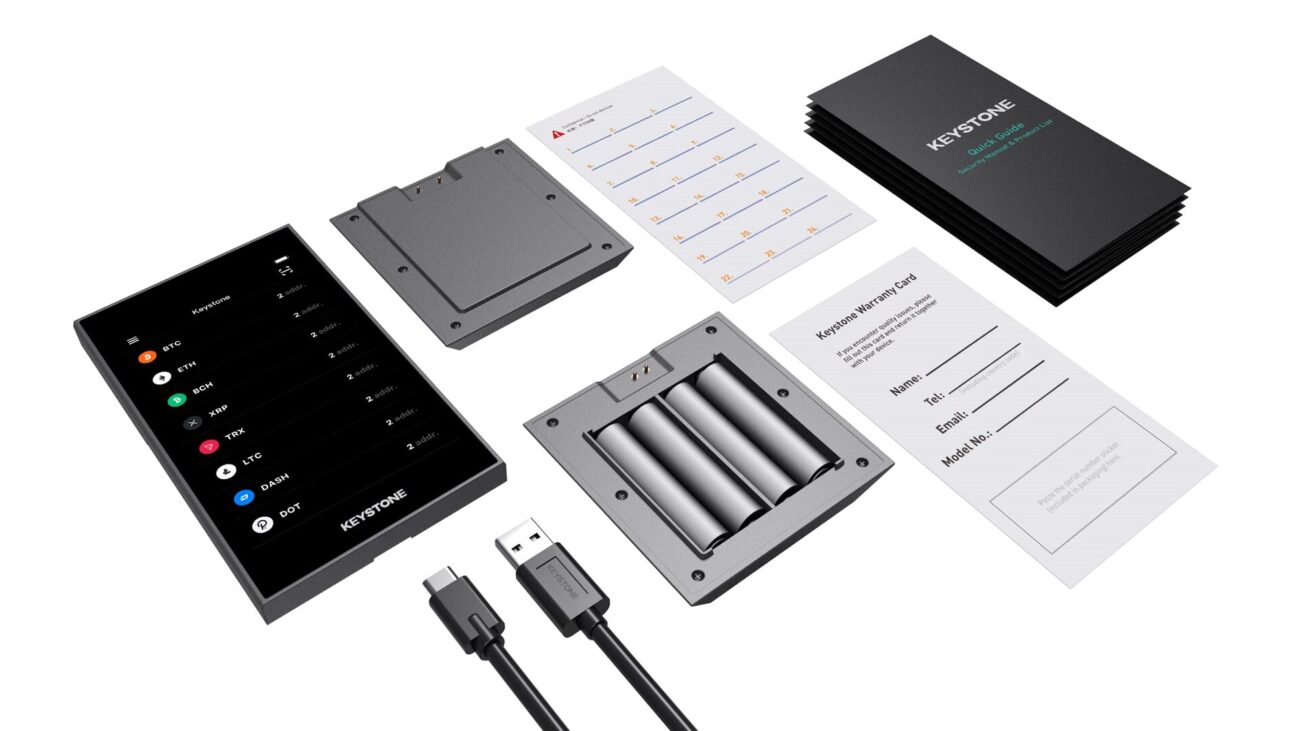
Setting Up and Using Your Hardware Wallet
Initial Setup Best Practices
When first configuring your hardware wallet, implement these security best practices:
- Carefully record recovery seed phrase (keep copies in secure locations)
- Enable device passwords/PIN codes
- Ensure firmware is fully updated
- For redundancy, consider buying 1+ backup devices
- Test sending/receiving small crypto amounts before depositing larger sums
Sending/Receiving Crypto
- Connect wallet to computer/phone and enter your PIN
- Access wallet interface dashboard (e.g. Ledger Live, Trezor Suite)
- Navigate to Send/Receive functions for chosen cryptocurrency
- Enter recipient’s address and transaction amount
- Verify details on device screen and confirm transactions
Checking Balances and Transaction History
Hardware wallet interfaces like Ledger Live provide user-friendly access to:
- Crypto asset balances held on your wallet
- Historical transaction listings (deposits/withdrawals)
- Total portfolio balance and value charts
- Other details like stake rewards
Integrating with Software Wallets
For additional functionality, integrate your wallet by:
- Accessing preferred software/Web3 wallet (MetaMask, Exodus etc)
- Connecting hardware wallet via WalletConnect or wallet-specific methods
- Following prompts on software wallet to connect device
Then you can leverage DeFi apps and pooled staking while keeping assets secured on hardware.
Keeping cryptocurrencies safe doesn’t need to be intimidating with robust and easy-to-use hardware wallets. By picking an option suited to your holdings and risk tolerance, your digital assets gain formidable protection against online and physical threats. Take your time, evaluate multiple options, and implement security best practices, before selecting the top hardware wallet for your needs.



